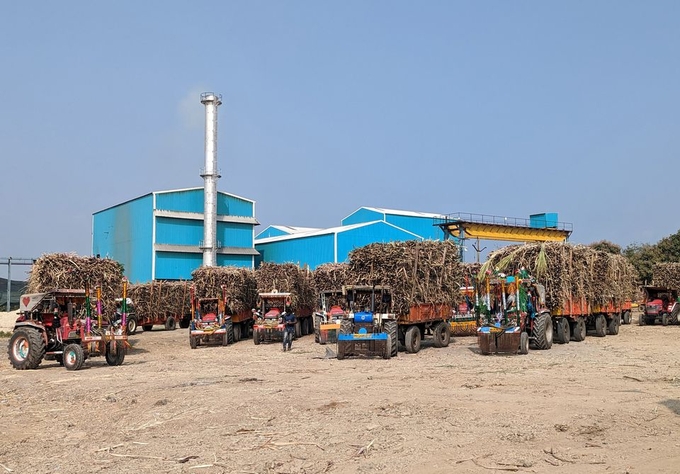May 14, 2025 | 18:21 GMT +7
May 14, 2025 | 18:21 GMT +7
Hotline: 0913.378.918
May 14, 2025 | 18:21 GMT +7
Hotline: 0913.378.918

Food prices are expected to increase by up to 7 per cent next in 2023, a new report has found. Photo: Getty Images
A new study estimates that a Canadian family of four will spend $1065.60 more on groceries in 2023, with food prices set to increase by up to 7 per cent next year.
The Canada Food Price report, released Monday and published by Dalhousie University, the University of Guelph, the University of British Columbia and the University of Saskatchewan, predicts that food prices will increase by between 5 and 7 per cent in 2023.
"In 2023, it is expected that Canadians will continue to feel the effects of high food inflation, and food insecurity and affordability will also be a big issue with rising food prices," the report said.
"Canadians will still need to be prepared to spend more in the coming year."
The report said that climate change and higher transportation and energy costs are the key factors that will drive the price increase in 2023.
"Overall, commodities prices are increasing, and the global supply chain has been impacted by multiple factors including an unprecedented price increase for numerous commodities and food products," the report said.
Vegetable prices are expected to increase between six and eight per cent in 2023, the most of all the food categories. Meat, bakery and dairy items will see price jumps of between five and seven per cent next year. Fruits will see prices increases between three and five per cent.
For a family of four, including a man aged 31-50, a woman aged 31-50, a boy aged 14-18 and a girl aged 9-13, the increases mean they will be spending approximately $16,288.41 on food in 2023, an increase of $1065.60 compared to 2022.
The 2023 food price forecast marks a slight decline in growth from the 10 per cent surge experienced in 2022.
Food prices soared in the last year, increasing at the fastest rate seen in 41 years. Most recently, food prices increased 10.1 per cent in October, according to Statistics Canada, which marked a slight decline from the 10.3 per cent increase recorded in September. But food purchased from stores continued to increase at a faster rate than all other items calculated as part of the Consumer Price Index (CPI), jumping 11 per cent. The cost of dry and fresh pasta was up 44.8 per cent in October, margarine up 40.4 per cent, lettuce up 30.2 per cent, and eggs up 13.8 per cent.
Sylvain Charlebois, a professor of food distribution and policy at Dalhousie University and project lead on the report, said he expects CPI to surpass the food inflation rate (as measured by food purchased from stores) in 2023, reversing a trend in place since October 2021.
"That's why sticker shock is so abundant. Things have been skyrocketing," Charlebois said in an interview with Yahoo Finance Canada. "That is likely to end in 2023, which is good news."
The forecast comes as several economists predict a recession will hit in the first half of 2023, as soaring inflation and rising interest rates weigh on consumer spending, the housing market and labour force participation.
A potential recession could provide "a silver lining" for Canadians when it comes to food prices, Charlebois said.
"If you can keep your job, I suspect prices are going to be much friendlier in an economic downturn, because grocers will set prices based on what the market can bear," he said.
At the same time, weakness in the Canadian dollar could drive food prices higher, something Charlebois said he will be watching for in 2023.
(Finance.yahoo)

(VAN) Fourth most important food crop in peril as Latin America and Caribbean suffer from slow-onset climate disaster.

(VAN) Shifting market dynamics and the noise around new legislation has propelled Trouw Nutrition’s research around early life nutrition in poultry. Today, it continues to be a key area of research.

(VAN) India is concerned about its food security and the livelihoods of its farmers if more US food imports are allowed.

(VAN) FAO's Director-General emphasises the need to work together to transform agrifood systems.

(VAN) Europe is facing its worst outbreak of foot-and-mouth since the start of the century.

(VAN) The central authorities, in early April, released a 10-year plan for rural vitalization.

(VAN) Viterra marked a significant milestone in its carbon measurement program in Argentina, called Ígaris, reaching 1 million soybean hectares measured.